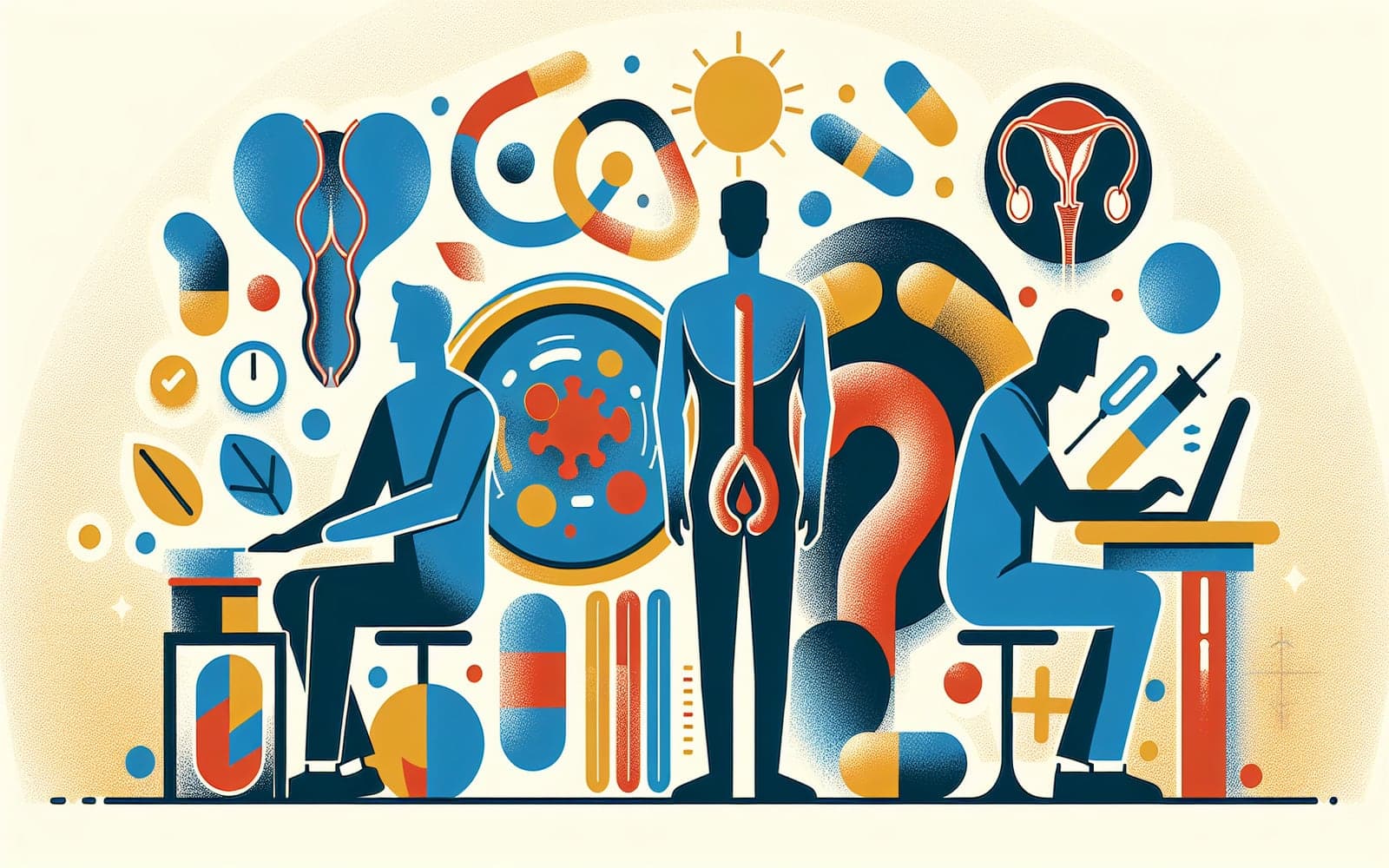Antibiotics for Chronic Prostatitis: The Long Game
Published: Feb 17, 2024
Treating chronic bacterial prostatitis is like playing a long chess match against bacteria. It requires the right moves with antibiotics over an extended period to checkmate the infection.
Contents
Why the Long Haul?
The prostate gland is like a fortress for bacteria. Its unique structure makes it hard for antibiotics to penetrate. Plus, the infection can create biofilms - slimy protective layers that shield bacteria. That's why short courses of antibiotics often fail. Doctors typically prescribe 4-6 weeks of antibiotics, sometimes even longer, to fully clear the infection.
Choosing the Right Antibiotic
Not all antibiotics are created equal when it comes to prostate infections. Fluoroquinolones like ciprofloxacin are often the first choice. They're like special forces, able to penetrate deep into prostate tissue. Other options include trimethoprim-sulfamethoxazole or doxycycline. The choice depends on the specific bacteria involved and any antibiotic resistance.

The Relapse Challenge
Even with proper treatment, chronic prostatitis often comes back. It's like a game of whack-a-mole. When this happens, doctors might prescribe another round of antibiotics, possibly for even longer. They might also switch to a different antibiotic or try combination therapy. Managing relapses is a key part of long-term treatment.
Beyond Antibiotics
While antibiotics are the cornerstone of treatment, they're not the whole story. Addressing any underlying urinary obstruction is crucial. Some doctors also recommend alpha-blockers to help with urinary symptoms. Pain management and lifestyle changes can also play a role in overall treatment.
Frequently Asked Questions
Long-term antibiotics can cause digestive issues, tendon problems, and antibiotic resistance.
Some improvement often occurs within a week, but full recovery can take 4-6 weeks or longer.
Your doctor might consider other diagnoses or try different antibiotic combinations.
It's best to avoid alcohol, as it can interact with some antibiotics and irritate the prostate.
Most men don't, but some with frequent relapses may need intermittent or long-term low-dose antibiotics.
The Bottom Line
Treating chronic bacterial prostatitis requires patience and persistence, but with the right approach, most men can achieve significant improvement.
References
- Lipsky BA, Byren I, Hoey CT. Treatment of bacterial prostatitis. Clin Infect Dis 2010; 50:1641.
- Perletti G, Marras E, Wagenlehner FM, Magri V. Antimicrobial therapy for chronic bacterial prostatitis. Cochrane Database Syst Rev 2013; :CD009071.
- Naber KG, Roscher K, Botto H, Schaefer V. Oral levofloxacin 500 mg once daily in the treatment of chronic bacterial prostatitis. Int J Antimicrob Agents 2008; 32:145.
This article has been reviewed for accuracy by one of the licensed medical doctors working for Doctronic. Always discuss health information with your healthcare provider.
AI Doctor Visit Required
Appointments available 24/7
15-min consultation. No hidden costs.
AI Doctor Visit Required
For safety reasons we have been forced to end this consultation.
If you believe this is a medical emergency please call 911 or your local emergency services immediately.
If you are experiencing emotional distress, please call the the Suicide & Crisis Lifeline at 988 or your local crisis services immediately.
Contact us
You can also email us at help@doctronic.ai
We aim to reply within 5-7 days
How likely are you to recommend Doctronic to friends or family?


